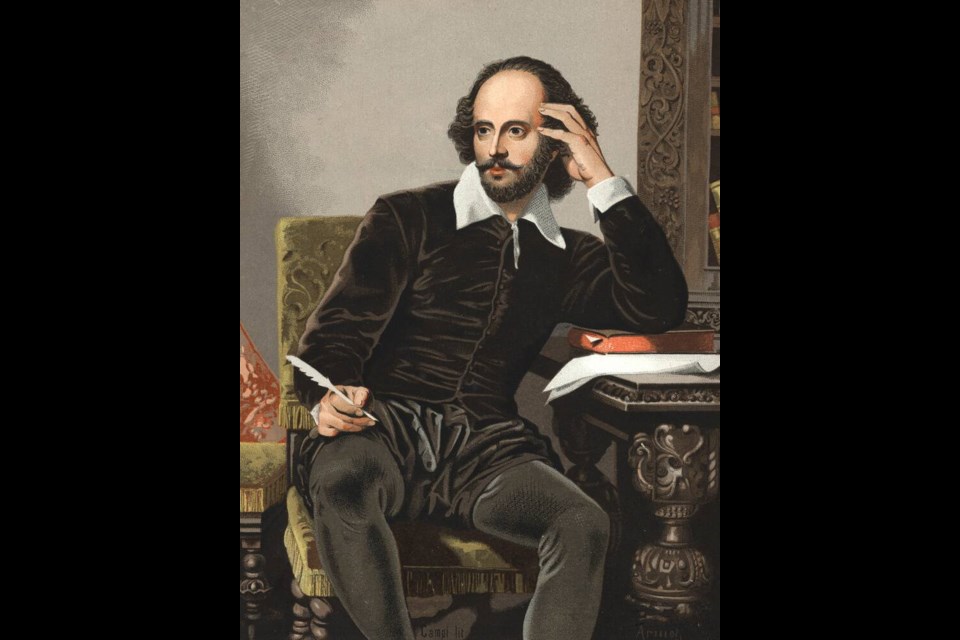The apparently endless debate about the relevance of teaching Shakespeare in today’s high schools has hit the headlines in, of all places, New Zealand.
The Bard himself would probably have recognized the situation because, as he had his great character Hamlet comment on politically flavoured over-thought controversies like this one: “There is nothing either good or bad, but thinking makes it so.”
What brought the controversy into the public spotlight this time was a denial of Shakespeare Globe Centre New Zealand’s application for a relatively minor $31,000 to fund the Sheilah Winn Shakespeare Festival. The request was declined by Creative New Zealand because “the proposal did not demonstrate the relevance in this time and place and landscape to the contemporary art context of New Zealand.”
Creative New Zealand is a branch of the Arts Council of New Zealand, the national arts development agency in that country. The festival is an annual event that involves more than half the secondary schools in the country. Students from high schools around New Zealand perform five-minute and 15-minute excerpts from Shakespeare’s plays.
The decision to defund the event came as a disappointment to the 120,000 students who have performed in the annual festival since 1991.
To quote Shakespeare’s Othello, it seems to be a “foregone conclusion” that the current kerfuffle about teaching and performing Shakespeare in New Zealand’s high schools (or any high schools) may just be “full of sound and fury, signifying nothing” (Macbeth).
But for longtime advocates of Shakespeare for high school students, the real risk is that Creative New Zealand may “in one fell swoop” (Macduff in Macbeth) run the risk of scrubbing 400 years of the English language’s most admired and studied playwright from New Zealand’s high school curriculum.
The New Zealand Arts Council now appears to have its doubts about ending funding for the popular program, and more influential voices like that of Prime Minister Jacinda Ardern have spoken up to say that funding for the school Shakespeare festival will be found and the festival will continue, so “all’s well that ends well” (Shakespeare first folio 1623).
The central argument for defunding the program was that Shakespeare’s plays failed to show relevance to today’s kids and relied on a genre “located within a canon of imperialism” — whatever that is.
Apparently not persuaded by the looming “canon of imperialism” somehow represented in Shakespearean plays written 400 years ago, the former deputy prime minister of New Zealand, Winston Peters, wrote on his Facebook page that the decision amounted to “political and social engineering by overpaid sickly liberal bureaucratic wokester morons.”
That kind of talk may be what the Bard meant when his character Gonzalo in The Tempest advised: “The truth you speak doth lack some gentleness.”
True, English colonization of many places around the world, including New Zealand, resulted in the erosion of traditional practices and loss of cultural identity.
In New Zealand — as elsewhere on the planet — the British colonial “theft” of Māori lands resulted in the loss of many cultural elements for Māori men and women.
However, a closer examination of Shakespeare’s themes would have revealed that even back in Elizabethan times, Shakespeare was no fan of “imperialism,” which historians define as “the process whereby the dominant political-economic interest of one nation controls other peoples’ land and goods for their own enrichment.”
In fact, anti-imperialism is one of the central themes of The Tempest. The central character, Prospero, a demagogue who uses his language and power to beguile the shipwreck survivors, is a symbol of colonial power.
The plot in many ways echoes the power of rhetoric and oratory throughout history and in today’s politics.
Shakespeare, after all, was a playwright and chronicler who laid bare the recurring political and cultural idiosyncrasies found in every century and every country since the 1600s.
But are his themes — love, greed, hatred, betrayal, ambition and power — still relevant to an understanding of modern society and its politics?
Apparently so. The Guinness Book of Records lists 410 feature-length film and TV versions of William Shakespeare’s plays, making Shakespeare the most filmed author ever in any language.
Then there is the timeless reminder from As You Like It of our own fragile and short-lived importance in the great scheme of things: “All the world’s a stage and all the men and women are merely players.”
gfjohnson4@shaw.ca
Geoff Johnson is a former superintendent of schools.



